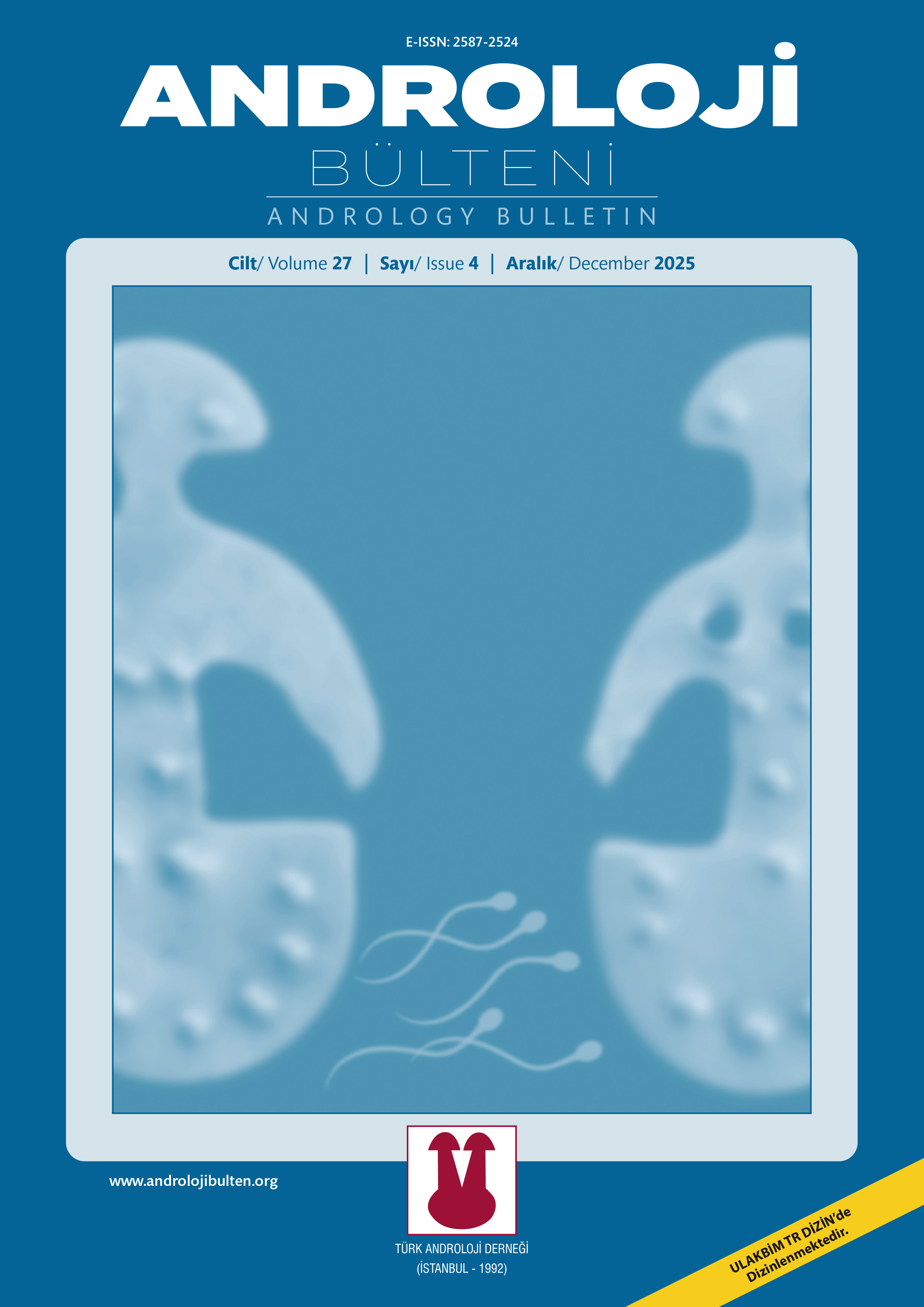
Content of this journal is licensed under a Creative Commons Attribution-NonCommercial 4.0 International License.
Investigation of fertility health knowledge status in university students
Havva Şeyma Yılmaz Sinan1, Nezihe Kızılkaya Beji21Biruni University, Graduate Education Institute, Master’s Programme Of Nursing, Istanbul, Türkiye2Biruni University, Faculty Of Health Sciences, Department Of Nursing, Istanbul, Türkiye
OBJECTIVE: This study was conducted to investigate the level of fertility health knowledge of students studying at a foundation university in Istanbul.
MATRERIAL and METHODS: It was conducted with 495 students studying at the Faculty of Health Sciences of a foundation university in Istanbul. The study data were collected by face-to-face questionnaire method using sociodemographic information form and Fertility Health Knowledge Scale (FHQS).
RESULTS: When the data obtained as a result of the study were evaluated, it was found that 91,7% of the participants were female, 8,3% were male, they had an average height of 165,51 cm and weight of 60,31 kg, the majority of them lived with their families (75,6%), did not smoke and drink alcohol (81% and 74,3%, respectively) and were not sexually active (93,7%). Participants received an average of 109,89±13,56 points from Fertility health information production, and an average of 17,11±6.26 correct answers were determined from 30 sections. It was determined that the number of correct answers given by the sexually active participants to the scale questions was lower than those who were not sexually active (p<.05). When the participants' answers were evaluated, it was understood that although they knew the effect of smoking on fertility, they had insufficient knowledge about the effect of passive smoking on general fertility, the effect of sleep patterns on female fertility, and the effect of intense exercise and nutrition on male fertility health.
CONCLUSION: As a result, it was determined that the awareness of the university students participating in the research about fertility health was not at the desired level. In order to raise awareness about fertility health, it is a social necessity to provide healthy lifestyle behaviours and to provide information about the factors affecting fertility health by providing trainings, especially in young adulthood.
Keywords: fertility, fertility health, health education, young adult
Üniversite öğrencilerinde fertilite sağlığı bilgi durumunun araştırılması
Havva Şeyma Yılmaz Sinan1, Nezihe Kızılkaya Beji21Biruni Üniversitesi, Lisansüstü Eğitim Enstitüsü, Hemşirelik Yüksek Lisans Programı, İstanbul, Türkiye2Biruni Üniversitesi, Sağlık Bilimleri Fakültesi, Hemşirelik Bölümü, İstanbul, Türkiye
AMAÇ: Bu çalışma, İstanbul’da bulunan bir vakıf üniversitesinin öğrencilerinde fertilite sağlığı bilgi düzeyinin araştırılması amacıyla yapılmıştır.
GEREÇ ve YÖNTEMLER: İstanbul’da bulunan bir vakıf üniversitesinin Sağlık Bilimleri Fakültesi’nde eğitim gören 495 öğrenci ile yürütülmüştür. Çalışma verileri sosyodemografik bilgi formu ve Fertilite Sağlığı Bilgi Ölçeği (FSBÖ) kullanılarak yüz yüze anket yöntemiyle toplanmıştır.
BULGULAR: Çalışma sonucunda elde edilen veriler değerlendirildiğinde; katılımcıların %91,7’sinin kadın, %8,3’ünün erkek olduğu, ortalama 165,51 cm boya 60,31 kg ağırlığa sahip oldukları, çoğunluğunun ailesi ile yaşayan (%75,6), sigara ve alkol kullanmayan (sırasıyla %81 ve %74,3) ve cinsel olarak aktif olmayan (%93,7) kişilerden oluştuğu saptanmıştır. Katılımcıların Fertilite sağlığı bilgi ölçeğinden ortalama 109,89±13,56 puan aldıkları, ölçekteki 30 soruya ortalama 17,11±6,26 doğru cevap verdikleri belirlenmiştir. Cinsel olarak aktif olanların ölçek sorularına verdikleri doğru cevap sayısının olmayanlara göre daha düşük olduğu belirlenmiştir (p<.05). Katılımcıların ölçek sorularına verdikleri cevaplar değerlendirildiğinde; sigara kullanımı fertiliteye olan etkisini bilmelerine karşın; pasif içiciliğin genel fertiliteye etkisi, uyku düzeninin kadın fertilitesi üzerinde etkisi ile yoğun egzersiz ve beslenmenin erkek fertilite sağlığına etkisi konusunda yetersiz bilgi sahibi oldukları saptanmıştır.
SONUÇ: Sonuç olarak araştırmaya katılan üniversite öğrencilerinin fertilite sağlığı konusunda farkındalıklarının istenilen düzeyde olmadığı belirlenmiştir. Fertilite sağlığı konusunda farkındalık oluşturmak için özellikle genç yetişkinlik döneminde, eğitimler verilerek sağlıklı yaşam biçimi davranışları kazandırılması ve fertilite sağlığını etkileyen faktörler hakkında bilgi verilmesi toplumsal bir gerekliliktir.
Anahtar Kelimeler: fertilite, fertilite sağlığı, genç yetişkin, sağlık eğitimi
Manuscript Language: Turkish
(339 downloaded)













